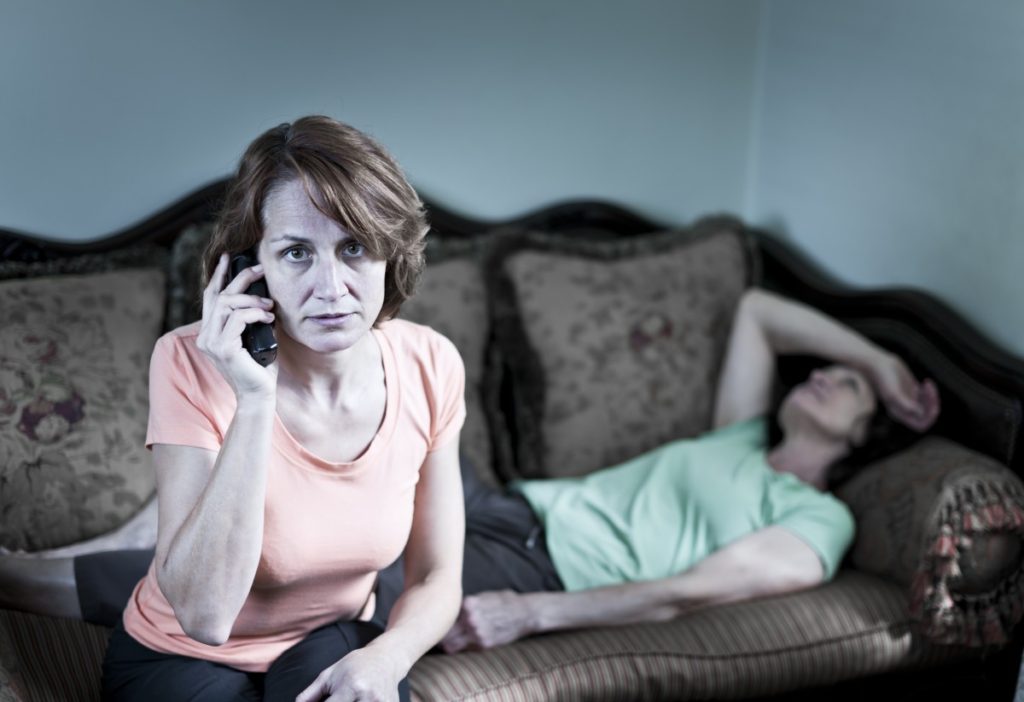Lorelie Rozzano is a guest blogger for Vertava Health.
What I Learned While Working With The Addict’s Family.
It’s been my great honor and privilege to have worked closely with the addict’s family and I must confess; these folks hold a very special place in my heart. As a recovering addict it’s easy to recognize the devastation addiction wreaks, in the lives of the people affected by it. I am guilty of doing my fair share of damage and my children still wear the scars. Addiction is a ‘me, me, and me,’ disease and in the throes of it, I seldom thought of how my actions affected the people who loved me.
Addiction goes hand in hand with enabling and codependency.
In other words, my ugly and abusive behaviors were often minimized and excused. Codependency is an intense and pathological dance of giving, but not giving in the way you might think. The codependent gives, the addict takes, which in turn allows the addicted person to focus solely on their primary relationship, being their drug of choice. A codependent is a person who supports or enables another person’s addiction or poor choices by doing for them what they can and should be doing for themselves. This person over-functions allowing the addicted person to remain dependent while under-functioning. This crippling, dysfunctional relationship is toxic for both parties.
The addict’s family worries excessively (often to the detriment of their own health) about their addicted loved one.
They also put up with and make excuses for, bullying and manipulative behavior. They minimize their needs and values to stay in relationship with the addicted person. An example of this is my recent conversation with a very sweet 63 year old man. He was clearly distraught when I spoke with him and admitted that he has nothing left. He is living in a rented basement suite and has spent all his retirement savings and money, on his son. To make matters worse, he recently lost his relationship with a ‘lady friend.’ She left him because she couldn’t understand or tolerate his willingness to flush his entire life savings down the toilet to accommodate his son’s wishes. The man himself was quiet baffled by this and couldn’t understand it, either. He was lost, broken, in pain and confused. He was also, all alone. Now that there was no more money to be had, his son had stopped talking to him. This poor man was crushed. And he’s not alone.
Behind every addicted individual is a family system in extreme distress.
Because the family is so focused on their addicted loved one, they don’t see how unmanageable their own lives have become. These folks are the ones who try and make everything better for the addict. They’re the ones calling rehab centers and pleading to get their sick loved one admitted. They’re also the ones paying the treatment bills. Although the family might think they’re helping, what they’re really doing is walking a fine line. As long as an addict can manipulate their family system, the chances of them ever recovering, are slim. It isn’t until the family is willing to cut the enabling apron strings that either party can move forward in a way that promotes health and well-being. Although the addict’s family doesn’t often come to treatment for an inpatient experience, some do. After having had the pleasure of working with these folks I can tell you, I learned a lot from them.
The codependent or enabler are often anxious and want to ‘take care’ of their family.
They can be excessively compliant, which the addicted person takes total advantage of. They may feel guilty for taking care of their own needs and view ‘self-care,’ as selfish. They want everyone in the family to be happy, leaving them in the role of peacekeeper. They will try pleasing others at their own expense. People pleasing leaves them feeling tired and resentful but they have a difficult time expressing it and saying no or setting boundaries. In a way, codependents are also addicted. Not to substance but to destructive behavior patterns they have in relating to and feeling responsible for, other people. I never understood why my friends and family would tolerate my horrible behavior for as long as they did. I certainly didn’t respect them for putting up with my use. As a matter of fact the longer they put up with it, the less I respected them (and me) and the more I believed I was entitled to act the way I was. It wasn’t until I started working with the addict’s family, that I began putting all the pieces together. Addict’s on their own have a tough time staying sick. Without enablers they are forced to face their consequences and in doing so, have a far better chance of recovering. But the family’s willingness to throw themselves in front of the bus is just too appealing, for an addicted individual to pass up. In working with these families I realized that they were just as sick as their addicted loved ones. I learned that just because their illness looks different, didn’t mean the end result wasn’t still the same.
Whether you’re addicted to drugs, or a person who is, it’s going to end badly without help.
You may have heard it said, the measure of a community is how it treats its most vulnerable citizens (meaning their addicted population.) Personally, I think we need to add the addict’s family to that statement. For without a doubt, they are every bit as vulnerable as their addicted loved one and deserve the same support. If you or someone you love needs help, please call this confidential number for assistance. 844-470-0410.


